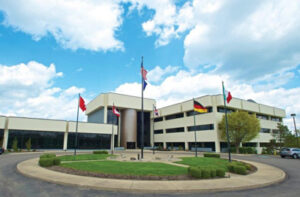Hillenbrand reports positive results for first quarter
Batesville, IN – Hillenbrand, Inc. reported results for the first quarter, which ended December 31, 2022.
“We delivered a solid start to fiscal 2023, with revenue from our Advanced Process Solutions segment coming in stronger than expected driven by healthy demand in our base business as well as in our recent acquisitions,” said Kim Ryan, President and Chief Executive Officer of Hillenbrand. “We remain in a challenging macroeconomic environment, with continued delays in customer decisions impacting orders within our Molding Technology Solutions segment. As we navigate this period of macro uncertainty, we remain focused on deploying the Hillenbrand Operating Model to manage costs and drive operational improvements. With the completion of our sale of Batesville, we are back within our net leverage targets and well-positioned as a pure-play industrial leader to drive long-term, profitable growth.”
Revenue from continuing operations of $656 million increased 16% compared to the prior year, largely due to acquisitions. On an organic basis, which excludes the impacts of the Linxis, Herbold, Peerless, and Gabler acquisitions, the TerraSource Global divestiture, and foreign currency exchange, revenue increased 4% year over year, primarily due to higher aftermarket parts and service revenue and favorable pricing.
Net income from continuing operations was $27 million, or $0.35 per share, an increase of 21% compared to the prior year. Adjusted net income from continuing operations of $49 million resulted in adjusted EPS of $0.70, an increase of $0.14, or 25%, primarily due to pricing and productivity improvements, the impact of acquisitions, fewer shares outstanding, and a lower tax rate, partially offset by inflation, an increase in strategic investments, unfavorable foreign currency translation, and higher interest expense. The adjusted effective tax rate for the quarter was 25%, a decrease of 520 basis points primarily due to the recognition of a discrete tax benefit related to the approval of a tax incentive in China for high-tech companies.
Adjusted EBITDA of $101 million increased 13% year over year, or 3% on an organic basis, as favorable pricing and productivity improvements were partially offset by cost inflation and an increase in strategic investments. Adjusted EBITDA margin of 15.4% decreased 40 basis points, primarily due to inflation.

